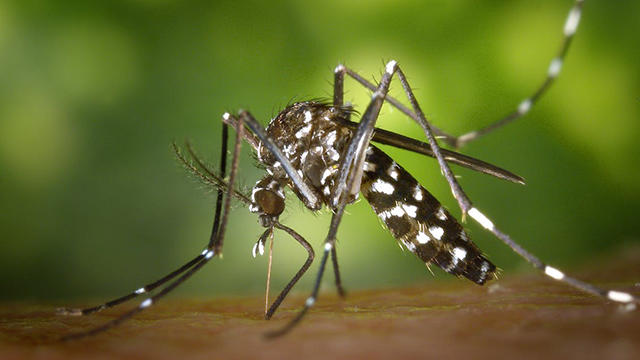Human Cases of West Nile Virus Confirmed in Halton
Published September 12, 2017 at 1:14 pm

Four Halton residents have tested positive for West Nile virus (WNV), making them the first human cases in Oakville, Burlington, Milton, and Halton Hills in 2017.
Four Halton residents have tested positive for West Nile virus (WNV), making them the first human cases in Oakville, Burlington, Milton, and Halton Hills in 2017.
“Until the fall frost, Halton residents should continue to protect themselves against mosquito bites and remove mosquito breeding sites,” said acting Medical Officer of Health Dr. Daniela Kempkens.
“While 80 per cent of people infected with West Nile virus will have no symptoms, others will have West Nile fever consisting of fever, headache, muscle ache and a rash.”
Concerned residents or those experiencing symptoms are being encouraged to visit their health care professional.
The announcement comes less than two weeks after residents were reminded to take precautions.
Urban areas are more likely to have mosquitoes that carry WNV. The types of mosquitoes that transmit WNV to humans most commonly breed in urban areas and in places that hold standing water such as bird baths, plant pots, old toys, and tires.
Residents can take the following steps to protect themselves and their families from mosquitoes:
- Cover up. Wear light-coloured, long-sleeved shirts and pants with tightly-woven fabric.
- Use an approved insect repellent, such as one containing DEET or Icaridin.
- Avoid being outdoors from early evening to morning when mosquitoes are most active and likely to bite, as well as at any time in shady, wooded areas.
- Make sure your window and door screens are tight and without holes, cuts or other openings.
- Reduce mosquito breeding sites around your home by getting rid of all water-filled containers and objects, where possible. Change the water in bird baths at least once per week.
A map showing the locations of standing water sites that have had larvicide applied this year is available here.
Residents can phone 311 or e-mail [email protected] to report standing water at public facilities.





